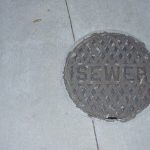DIY Drain Cleaners Are The Best Option for Routine Cleaning
Many people only consider drain cleaning when a clog has already developed, but this form of preventative maintenance can save you a massive amount of stress and hassle. Contrary to popular belief a clog does not simply appear overnight inside your pipes. Clogs are an accumulation of grease, grime, and debris that forms over a prolonged period. This means that it is possible to avoid the expense and hassle of having a sink or tub overflow and damage your home. While you may be tempted to reach for harsh chemical cleaners when your pipes are clogged, these products are rarely effective and can sometimes cause further damage to the pipes. Fortunately, routine cleaning with DIY drain cleaners can reduce the risk of a clog forming.
Borax, Salt, and Vinegar:
Making up a solution of one part Borax, one part salt and two parts vinegar can be an efficient and safe drain cleaner. This solution can be poured down drains and rinsed with plenty of hot water to clear grime, hair and other debris that can form into a clog.
Vinegar and Baking Soda:
This is a popular DIY cleaning formula that can be very useful for drains. Pour a cup of baking soda straight into the drain and follow it with a cup of vinegar. This will create a foamy mixture which can be flushed with lots of hot water. This mixture can be particularly effective at removing greasy residue inside the pipes.
Boiling Water:
This is the simplest DIY drain cleaner, but it can be very effective against greasy debris inside your pipes. All you need to do is to pour boiling water straight into the drain, avoiding allowing the water to make contact with any surrounding porcelain or plastic. This needs to be done carefully to avoid scalding yourself or cracking and damaging porcelain and plastics.
Prevention is Better Than Cure:
The best DIY drain cleaning method is to reduce the amount of debris inside your pipes. Preventing hair, food, and other matter from going down the drain will dramatically reduce the risk of a clog forming. While this may seem like a daunting task, it can be easily accomplished. For example, install hair traps on your bathroom sink, tub, and shower drains. You should also take care not to allow starchy, greasy or stringy foods to be washed down the kitchen sink. Under no circumstances should you ever pour oil or grease down the drain. Even if it is liquid, it will still solidify inside the pipe and cause a clog. Remember that your drain is not a garbage can and is not designed to dispose of everything. If in doubt about whether you can dispose of something down the drain, err on the side of caution and throw it in the trash.
It is important to remember that while DIY drain cleaners can be effective for routine cleaning, they may not be able to clear a clog. Before you are tempted to reach for harsh chemical cleaners, consider the damage they can cause to your pipes and put you and your plumber at risk of chemical burns. If you have a clog that you can’t seem to shift, it is a far better idea to call in a professional plumber who will be able to offer an efficient and safe solution.
By Giovanni Longo President Flood Brothers Plumbing
Giovanni Longo is a 3rd generation master plumber who has been practicing his craft and trade in the greater Los Angeles area for well over a decade and a half. A plumbing and hydraulics-engineering innovator, Giovanni’s particular world-class expertise focuses on dealing with challenging sewer system designs as well as resolving complex commercial and residential draining issues. As a certified Flood Mitigation expert, he is also well versed in a wide variety of water damage and remediation solutions.





